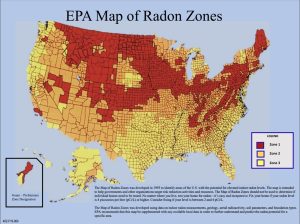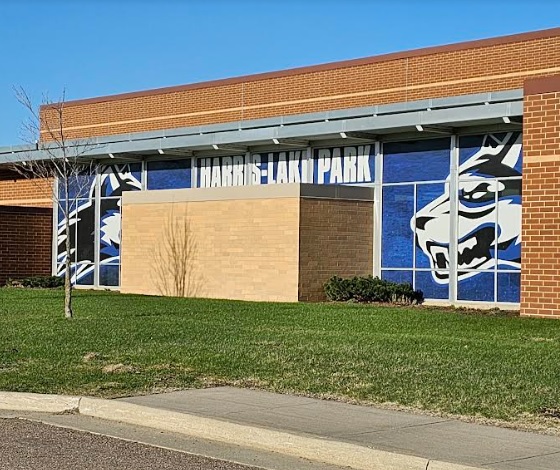Northwest Iowa — Did you know that according to the US EPA, our area is at the highest level of risk for radon gas? The entire state of Iowa, as well as eastern South Dakota, eastern Nebraska, and southwest Minnesota are at the highest level of risk.
January is Radon Action Month. Randy Lane is a health physicist with the radon program at the Iowa Department of Public Health. He says radon is a colorless, odorless, radioactive gas that is actually produced by the decaying of uranium in the soil. He says that means that yes, there is probably naturally-occurring uranium in the soil near you. According to Lane, it’s the decay of the radon through the emission of alpha particles that’s hazardous — because they can adhere to your lungs and cause lung cancer.
Lane tells us what to do.
Those kits can also sometimes be found through your local health department, or if you call them they can at least point you in the right direction. According to Lane, you should do the test and then send it where you are directed to. If your results come back high, they suggest you do another test to make sure. If you have confirmed high levels of radon, he says that’s when they say you need to mitigate the issue. He says those who help you fix your radon problem need to be licensed. Click here for more information.
Lane tells us that if something needs to be done to prevent exposure to the cancer-causing gas in your home, what will probably happen is that a system will be installed to pipe the radon-containing air away from the spaces under your home and exhaust it to the air above your house. EPA experts tell us that when radon gas is discharged via a radon mitigation system above the roof, the radon concentration falls off dramatically with distance from the point of discharge. In fact, the radon gas concentration approaches background levels at 3-4 feet from the discharge point, and is therefore no longer a risk.
He says people should test for radon every two years.
Click here for more information about radon from the EPA.
The EPA also has a number of hotlines that you can call for more information about the various aspects of the issue:
1-800-SOSRADON (1-800-767-7236)* Purchase radon test kits by phone.
1-800-55RADON (557-2366)* Get live help for your radon questions.
1-800-644-6999* Radon Fix-It Hotline for general information on fixing or reducing the radon level in your home.
1-800-426-4791 Safe Drinking Water Hotline for general information on drinking water, radon in water, testing and treatment, and standards for radon drinking water.
Operated under a contract with EPA.











